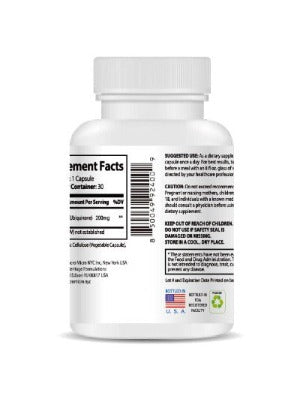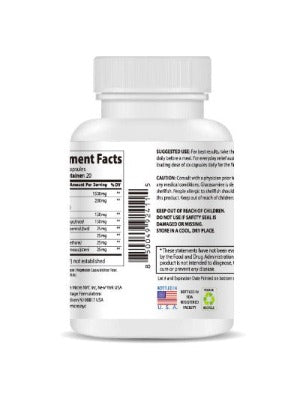Understanding the Itch: Delving Deep into the Connection Between Allergic Conjunctivitis and Seasonal Allergies
Seasonal allergies, that familiar springtime nemesis, affect millions worldwide. Beyond the familiar sneezing fits, runny noses, and itchy throats, many allergy sufferers grapple with the often-overlooked discomfort of allergic conjunctivitis. This inflammation of the conjunctiva—the delicate membrane lining your eyelids and covering the whites of your eyes—is frequently a direct consequence of the very same allergens triggering your other symptoms. The pervasiveness of seasonal allergies makes understanding this connection crucial for effective management and a higher quality of life.
The relationship between allergic conjunctivitis and seasonal allergies is undeniably intimate. The same airborne culprits—pollen, mold spores, pet dander, and other environmental irritants—that set off your sneezing and congestion also trigger an inflammatory response in your eyes, resulting in a range of uncomfortable symptoms. This highlights the interconnected nature of allergic reactions within the body, often manifesting as a cascade of effects rather than isolated occurrences. This holistic understanding is crucial when considering treatment plans.
The Science Behind the Itch: Allergic Conjunctivitis Explained in Detail
Allergic conjunctivitis occurs when your immune system overreacts to allergens. This overreaction isn't a simple process; it's a complex interplay of cellular and molecular events. When allergens enter the eyes, they bind to immunoglobulin E (IgE) antibodies already present on mast cells in the conjunctiva. This binding acts as a trigger, initiating a cascade of events that lead to the characteristic symptoms. The mast cells, acting as sentinels of the immune system, release histamine and other inflammatory mediators, such as leukotrienes and prostaglandins.
Histamine is the primary culprit behind many of the symptoms. It causes blood vessels in your conjunctiva to dilate, leading to the characteristic redness and swelling of the eyes. Simultaneously, histamine stimulates nerve endings, resulting in the intense itching, often described as unbearable. The other mediators contribute to the overall inflammatory response, intensifying the symptoms and making them persistent. Understanding this detailed process underscores the need for a multi-pronged approach to treatment.
Recognizing the Signs: Common Symptoms of Allergic Conjunctivitis and When to Seek Help
Recognizing the symptoms of allergic conjunctivitis is crucial for seeking timely relief. While the experience can vary from person to person, several key indicators should prompt you to investigate further. These include:
- Intense Itching: This is often the most prominent symptom, prompting constant rubbing, which can further irritate the eyes and potentially lead to secondary infections.
- Redness and Bloodshot Eyes: The dilation of blood vessels causes a noticeable redness, making the whites of the eyes appear pink or bloodshot.
- Watery Eyes: Excessive tearing is the body's natural attempt to flush out irritants, but this constant watering can be disruptive.
- Swollen Eyelids: Swelling can range from subtle puffiness to significant swelling, depending on the severity of the reaction.
- Burning or Stinging Sensation: This discomfort further aggravates the already irritated eyes, making them feel raw.
- Sensitivity to Light (Photophobia): Bright lights may cause discomfort or even pain, making outdoor activities challenging.
- Mucus Discharge: A stringy, sticky mucus discharge can further contribute to eye irritation and stickiness.
- Eyelid Crusting (Upon Waking): In more severe cases, a crusty discharge may be observed upon waking, requiring careful cleaning.
If you're experiencing these symptoms during allergy season, it's highly probable you're dealing with allergic conjunctivitis. However, it's crucial to consult with an ophthalmologist or allergist for a proper diagnosis. They can rule out other conditions, like dry eye or infections, that might mimic the symptoms. Prompt diagnosis ensures appropriate treatment and prevents potential complications.
Navigating Relief: Effective Management Strategies for Allergic Conjunctivitis
Managing allergic conjunctivitis effectively requires a multifaceted approach. While over-the-counter medications such as antihistamine eye drops can provide temporary relief, long-term relief often requires a combination of approaches including controlling allergen exposure, adopting supportive measures, and considering additional therapies.
Minimizing contact with allergens is your first line of defense. This might involve:
- Staying indoors during peak pollen hours: Check local pollen counts to identify periods of high pollen concentration.
- Using air filters and purifiers in your home and car: These can significantly reduce allergen levels in your immediate environment.
- Washing your hair and changing your clothes after being outdoors: This removes allergens that may have settled on your body and clothing.
- Washing bedding regularly: Dust mites are common indoor allergens, so regular washing is crucial.
- Regularly cleaning your home to reduce dust mites: Use appropriate cleaning methods and products.
- Wearing sunglasses outdoors: This can help protect your eyes from airborne allergens and UV rays.
In addition to environmental controls, soothing and restorative products can play a crucial role in alleviating symptoms. For targeted relief from eye discomfort, consider incorporating the Wise Quest Soothing Eye Patches - 3-Month Wellness Pack into your routine. These patches, infused with traditional Chinese herbal medicine, offer a gentle, yet effective, approach to soothing irritated eyes.

The Wise Quest Soothing Eye Patches - 3-Month Wellness Pack offer a unique, natural solution. They gently alleviate eye fatigue, dryness, astringency, redness, and swelling. Their focus on promoting healthy blood circulation can help to reduce inflammation and restore comfort to irritated eyes. This natural approach complements other management strategies, providing comprehensive and holistic care. The three-month supply ensures consistent use, maximizing the potential benefits.
Beyond the Basics: When to Seek Professional Help for Allergic Conjunctivitis
While many cases of allergic conjunctivitis can be managed effectively at home with careful attention to allergen avoidance and the use of soothing products, some situations necessitate professional attention. If your symptoms are severe, persistent, or accompanied by vision changes, consult an ophthalmologist or allergist immediately. They can conduct a thorough examination, pinpoint the underlying cause of your symptoms, and recommend additional treatments or therapies, potentially including prescription medications.
Severe symptoms include persistent, intense itching that disrupts sleep or daily activities; significant swelling of the eyelids affecting vision; vision changes such as blurry vision or double vision; purulent (pus-like) discharge indicating a potential secondary infection; and persistent redness and inflammation unresponsive to home remedies. These warrant immediate professional consultation to rule out more serious conditions.
Reclaiming Comfort: Living Well with Allergic Conjunctivitis
Allergic conjunctivitis, while an unwelcome companion for many allergy sufferers, doesn't have to dictate your life. By understanding its connection to seasonal allergies, diligently controlling allergen exposure, and utilizing supportive products like the Wise Quest Soothing Eye Patches - 3-Month Wellness Pack, you can significantly reduce its impact. The combination of preventative measures and targeted symptom relief leads to a better quality of life.
Remember that proactive management, combined with seeking professional guidance when needed, can help you navigate the challenges of allergic conjunctivitis and enjoy a more comfortable life, free from the constraints of itchy, irritated eyes. By embracing a comprehensive approach, you can reclaim comfort and control over your allergy symptoms.
Additional Tips for Managing Allergic Conjunctivitis
Beyond the strategies already discussed, several additional tips can further enhance your management of allergic conjunctivitis:
- Cold Compresses: Applying cold compresses to your eyes can help reduce swelling and soothe inflammation.
- Artificial Tears: Using artificial tears can help lubricate your eyes and alleviate dryness.
- Avoid Rubbing Your Eyes: Rubbing can worsen inflammation and potentially introduce bacteria.
- Proper Hygiene: Wash your hands frequently to prevent the spread of infection.
- Consult an Allergist: An allergist can help determine your specific allergies and recommend appropriate treatments, including immunotherapy.
By combining these strategies with the use of products like the Wise Quest Soothing Eye Patches - 3-Month Wellness Pack, you can create a personalized plan to effectively manage your allergic conjunctivitis and enjoy relief from its bothersome symptoms.









